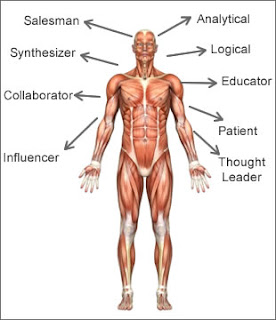One question I get asked a lot is “Are you more of a ‘technical SEO’ or a ‘marketing SEO’?” This question used to puzzle me a bit in the beginning as in my head the answer was pretty clear: I’m a marketer with a technical bent of mind.
This question then led me to think about some of the common characteristics that make a good in-house SEO. This helped me a lot too when making hiring decisions on what characteristics I should look for in an in-house SEO.
The other fact is SEO as an industry has matured over the years. As a result, what is expected out of an in-house SEO has changed as well. Companies don’t want to hire someone who can get them top rankings or create some monthly reports – that is a given now.
Increasingly, in-house SEOs are required to be more analytical and ROI focused. This evolution of SEO clearly demands SEO’s to have a good left brain and right brain combination. That said, there are definitely some peculiar characteristics of an in-house SEO, so let’s go over few of them.
1. SEO as a Thought Leader
Many times people outside the SEO world may not be able to visualize the business benefits you can drive from a successful in-house SEO program. An in-houser can open many new opportunities for a business and generate new streams of revenues.
Simply put: an in-houser can help people understand what SEO can do for their business. So in every conversation, in every meeting a SEO has the opportunity to display their thought leadership in search.
2. SEO as an Influencer
As an SEO you have to be an influencer. Influencer of new ideas, new ways of generating traffic, new set of processes, and so on.
In every organization, big or small, there are certain sets of processes that people follow. To integrate SEO into that process, you need influence many stakeholders.
Remember, when you add something new like SEO to an existing process you will encounter resistance. What you need to do: communicate and influence many stakeholders. After all, you’re inserting SEO for the greater good of the business and those convictions can drive you to become an influencer of people or ideas.
3. SEO as a Salesman
Gosh, aren’t we always selling something? Moreso with SEO as you are selling ideas, ROI projections, tools, projects, or even agency partners or consultants. Most of the times in order for SEO to get a seat at the table you have to be that salesman and build your case why SEO is integral to your overall business objectives.
4. SEO as a Collaborator
Over the years I have realized that SEO is baked as part of a bigger project with tens or hundreds of stakeholders and you need a team to climb those big mountains. An in-house SEO works with different sets of teams, stakeholders, and business objectives.
In a typical day you could end up collaborating with tens of different groups – collaboration becomes the key. A classic example is collaborating with your IT team. Another example is baking your SEO part into an agenda of a larger meeting. Sometimes to get those 10 minutes in a meeting you need to collaborate closely with the product or project managers so that you can give your SEO “update.”
5. SEO as an Educator
So much of SEO is viewed as a black magic in the outside world that the onus is on SEOs to bring transparency to the process. Once what we as SEOs do is transparent and stakeholders understand why you recommend the type of changes that you do, it creates a lot of buy-in as well.
SEO education is essential to getting buy-in. Don’t be surprised if you find yourself doing multiple rounds of SEO training across the organization.
6. Analytical SEO
Marketing is analytical in nature and as marketers we base our decisions after looking at analytics reports and then optimize our targets. SEOs have to do forecasting, look at product or keyword level ROI, work with finance, do budgeting, and most importantly also work with your analytics group (if you’re at a large org). As with many things, you need to be clear when working with analytics on not just what reports you want but how to extract the data that will help you in optimizing your campaigns.
7. SEO as a Logic Builder
This is where the power of your left brain comes in and that is logic. Software developers and programmers use their strong logic skills to create software flows and endless loops of if and then statements as an example.
SEOs need to have a logical mind as you would be dealing with programmers and also working through the code yourself. Plus, if you aren’t from programming background, then start learning languages as you need to understand codes. Once you understand code, then you will start forming logic.
8. SEO with Patience
You definitely need boatloads of patience. Depending on the size of the organization, there would be times where a straightforward title tag change could take weeks if not months!
Then you have designers, IT, business partners, and all other elements that your SEO recommendations won’t just move at the speed you desire. In situations like these, you have to exercise patience and push through to ensure that even after few months your recommended changes are done. If there are some bigger projects, then multiply that number by 4!
9. SEO as a Synthesizer
SEOs make many recommendations (e.g., changing URLs, replacing graphics and Flash with text, adding new content, pagination), but not all of your recommendations will be implemented. There could be business or other (political) issues that could come in the way and your job is to synthesize different viewpoints in order to get SEO requests accomplished. This makes SEO a synthesizer of ideas and different viewpoints.

















